
Are you a UX designer looking for the best tools to enhance your research process and create exceptional user experiences? Look no further! We’ve created a list of the top UX research software that will help streamline your workflow, gather insights, and ultimately improve your design decisions.
These tools automate boring tasks, find important information, and make it easy to share with your team. But with so many options out there, it’s hard to know which ones to choose. That’s where you come in!
In this blog, we will show you the 17 best UX research software and how they can make your job easier. Let’s explore this in detail and make your customers even happier.
What is UX Research?
UX research, short for User Experience research, is a systematic investigation method used to understand users’ behaviors, needs, motivations, and preferences when interacting with a product or service.
The primary goal of UX research is to gather insights that inform the design and development process. It ensures that the final product meets the users’ expectations and provides a positive experience.
UX research involves various methods and techniques, including surveys, interviews, usability testing, user observations, and analytics analysis. By employing these UX research methods, user researchers aim to uncover pain points, identify areas for improvement, validate design decisions, and ultimately create user-centered solutions that enhance the overall experience.
User research plays a crucial role in guiding product development by helping teams empathize with users, understand their needs, and ultimately deliver intuitive, useful, and enjoyable products.
What is UX Research Software?
UX research software is applications, platforms, and services designed to assist UX researchers in understanding how users interact with digital products. They help researchers gather feedback, analyze data, and interpret user behavior to inform design decisions. These tools encompass a wide range of functionalities, including:
- Survey platforms for collecting feedback,
- Usability testing software for evaluating interface usability,
- User interview tools for conducting qualitative research,
- Analytics and data visualization tools for analyzing user data,
- Prototyping and wireframing tools for testing design concepts.
Additionally, feedback collection systems, participant recruitment platforms, and remote user testing platforms play essential roles in streamlining the research process. By utilizing these tools, UX researchers can gather actionable insights and create user-centered products that meet the needs of their target audience.
Why Does UX Research Software Matter?
- Getting to Know Your Users: User research software helps companies learn all about their users—what they like, what they don’t, and what makes them happy.
- Making Things Easier to Use: user research software helps find those frustrating bits by watching how people use products and pointing out where things could improve. This helps companies fix problems and make products easier to use for everyone.
- Coming Up with Cool Ideas: UX research software helps companies develop new ideas for improving products. By listening to users and examining other companies’ actions, they can generate cool new features or ways to improve things.
- Avoiding Mistakes: UX research software helps avoid those mistakes by checking if ideas are good before spending lots of time and money on them. This saves companies from making big blunders and helps them make smarter choices.
- Working Together: UX research software helps teams collaborate by sharing what they find and discussing ideas. This way, everyone can be on the same page and make products that users will love.
What Tools Do UX Researchers Use?
UX research software users utilize diverse tools to facilitate user experience research, each serving specific functions tailored to uncover insightful data and enhance UX. Below are some commonly used tools:
- User and Usability testing tools
- User interview tools
- Participant recruitment tools
- Information architecture testing tools
- Product analytics tools
- User survey and feedback tools
Top 17 UX Research Software for Your Research Design
User experience (UX) research is crucial for creating products and services that meet the needs and expectations of users. Having the best user research software is essential to conducting effective UX research. Here, we’ll explore the top 17 UX research software that can streamline your research design process:
1. QuestionPro
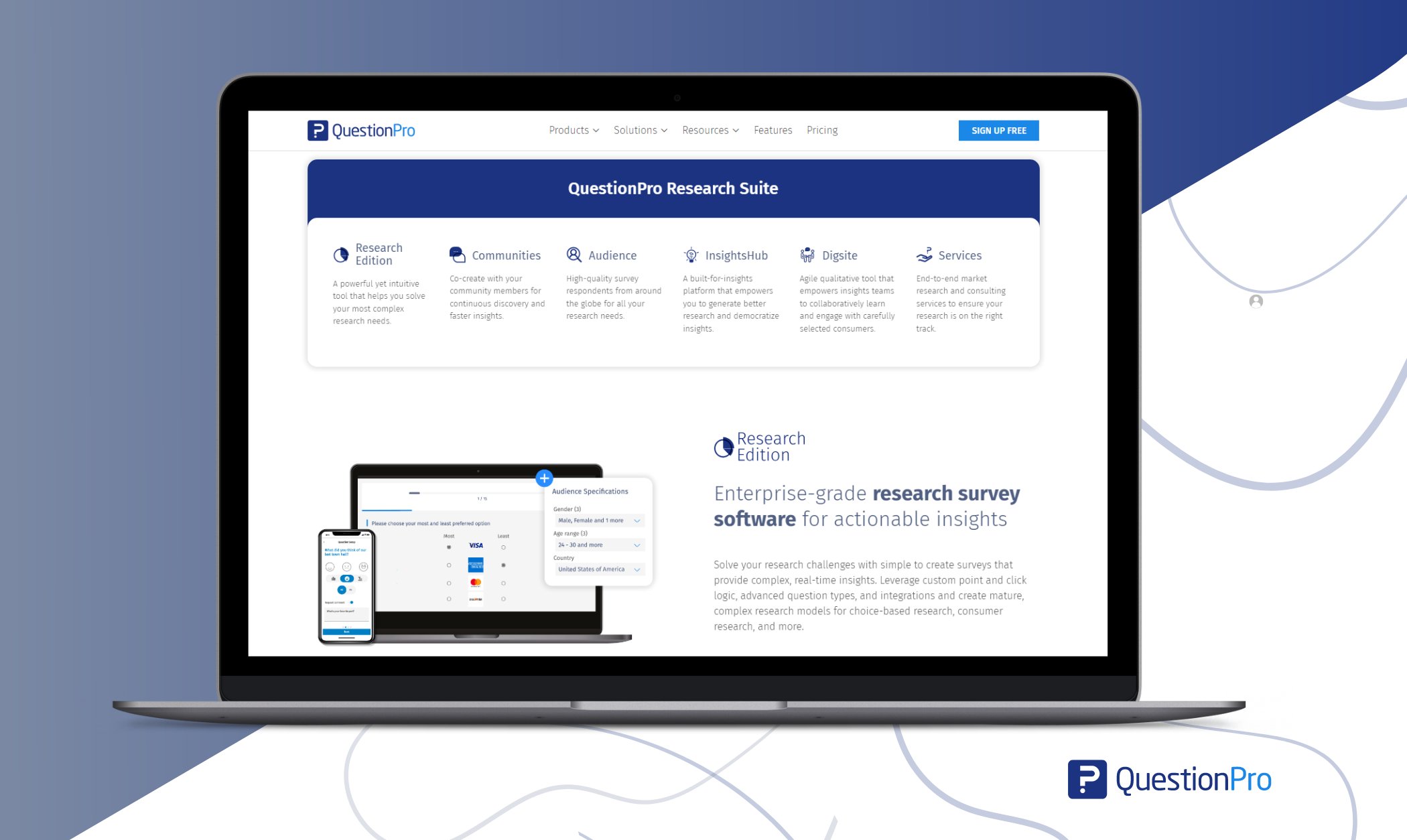
QuestionPro is a versatile and best UX research software that empowers researchers to gather valuable insights from users to enhance product experiences. With its advanced survey logic and customizable templates, QuestionPro simplifies the process of creating surveys customized to specific research objectives. Despite some advanced features requiring additional payment, QuestionPro remains a powerful tool for conducting UX research.
Best For:
- QuestionPro stands out for its advanced survey logic, customizable templates, and real-time analytics, making it ideal for gathering detailed feedback.
Pros:
- Powerful data analysis capabilities help decision-making.
- Advanced reporting options for in-depth analysis.
- Collaboration features for team research projects.
- Multilingual surveys for global reach.
- Mobile app for on-the-go survey management.
Cons:
- Advanced features may require more effort and resources to be effectively used.
Pricing:
- QuestionPro offers various pricing plans, starting at $99 monthly. Higher-tier plans offer additional features and customization options, and pricing is adjusted accordingly.
2. Typeform
Typeform is known for its visually appealing and interactive survey forms. With features like a conversational form interface and conditional logic, Typeform allows researchers to create personalized user interactions.
Best For:
Its seamless integration with various tools and platforms, extensive customization options for branding, and analytics dashboard for tracking responses make it a preferred choice for researchers.
Pros:
- Advanced logic for personalized interactions.
- Extensive customization options for branding.
- Analytics dashboard for tracking responses effectively.
- Interactive question types for engaging surveys.
Cons:
- Higher pricing for advanced functionalities.
- Visual style may not suit all use cases.
Pricing:
- The basic plan starts at $25 per month.
3. SurveyMonkey
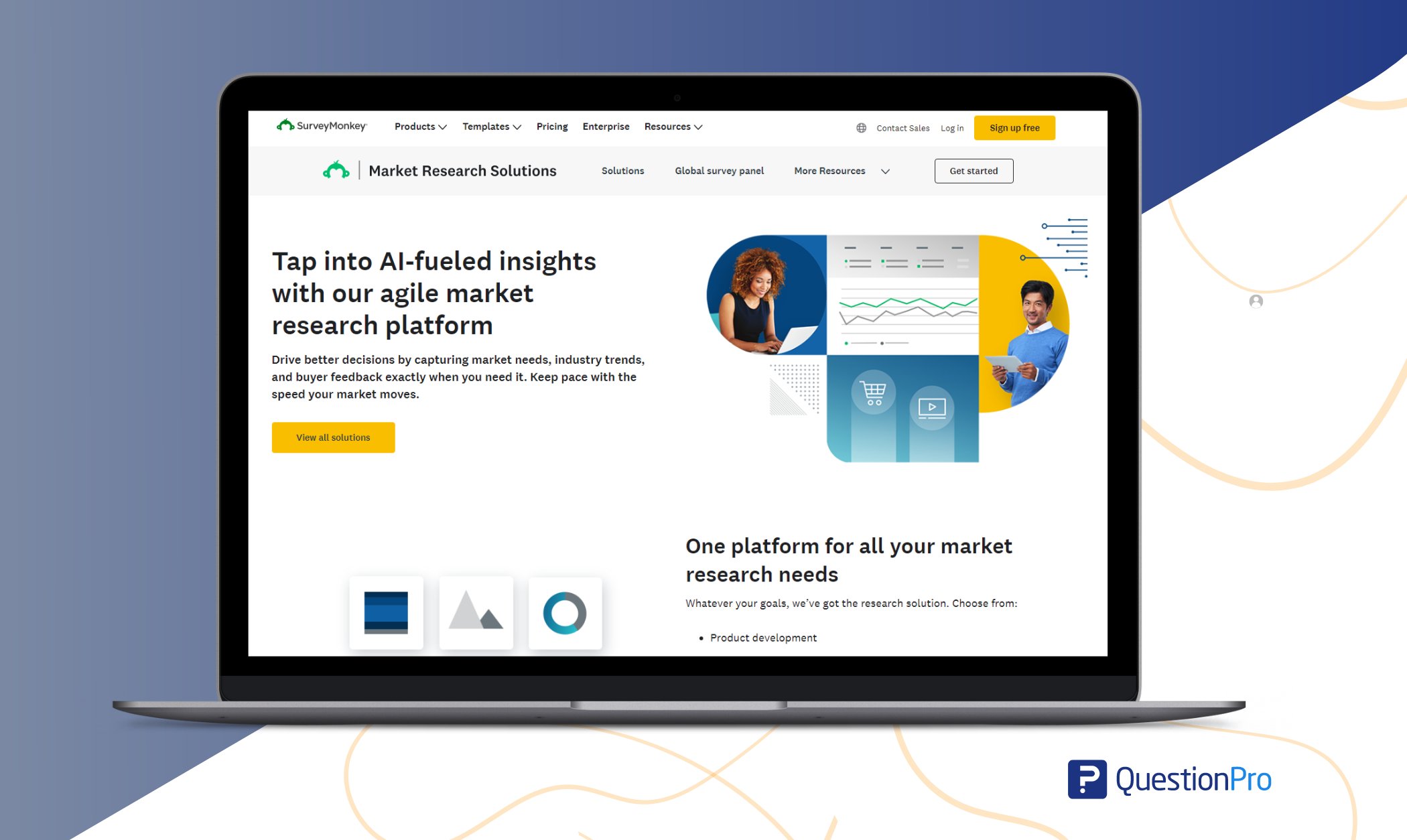
SurveyMonkey is a widely used online survey platform that provides various tools for user research, survey creation, and data analysis. Its customizable survey templates and robust data analysis tools make it a favorite among researchers.
Best For:
The platform offers advanced survey logic and customization options to create surveys to specific research objectives. SurveyMonkey also provides robust data analysis tools, enabling researchers to gain insights from survey responses.
Pros:
- User-friendly interface for survey creation.
- Diverse template library for various research needs.
- Advanced survey logic enhances data quality.
- Powerful data analysis capabilities aid decision-making.
Cons:
- Customization options may be limited.
- Support resources could be more comprehensive.
Pricing:
- The Premier Annual plan starts at $99 per month.
4. Lookback
Lookback specializes in remote user research, interviews, and usability studies. It is remote usability testing capabilities and screen and audio recording provide comprehensive insights into user behavior.
Best For:
Lookback offers real-time observation for live feedback and collaboration features for team projects.
Pros:
- Remote testing with screen and audio recording.
- Real-time observation for live feedback.
- Unlimited participants for broader insights.
- Collaboration features for team projects.
Cons:
- Higher pricing compared to some competitors.
- Customer support response times may vary.
Pricing:
- Starts at $25 per month for the Basic plan.
5. Userzoom
Userzoom offers an enterprise-level user research platform with tools for usability testing, surveys, and analytics. Its comprehensive suite of UX research Software, including user testing and benchmarking, makes it ideal for large-scale projects.
Best For:
The platform offers journey mapping for visualizing user experiences and advanced analytics for in-depth insights.
Pros:
- Moderated and unmoderated usability testing with real users.
- Journey mapping for user experience visualization.
- Advanced analytics for detailed insights.
Cons:
- Enterprise-level pricing may not be fit for small-scale projects.
- Initial setup and training may require time and resources.
Pricing:
- Contact sales for pricing details.
6. Figma
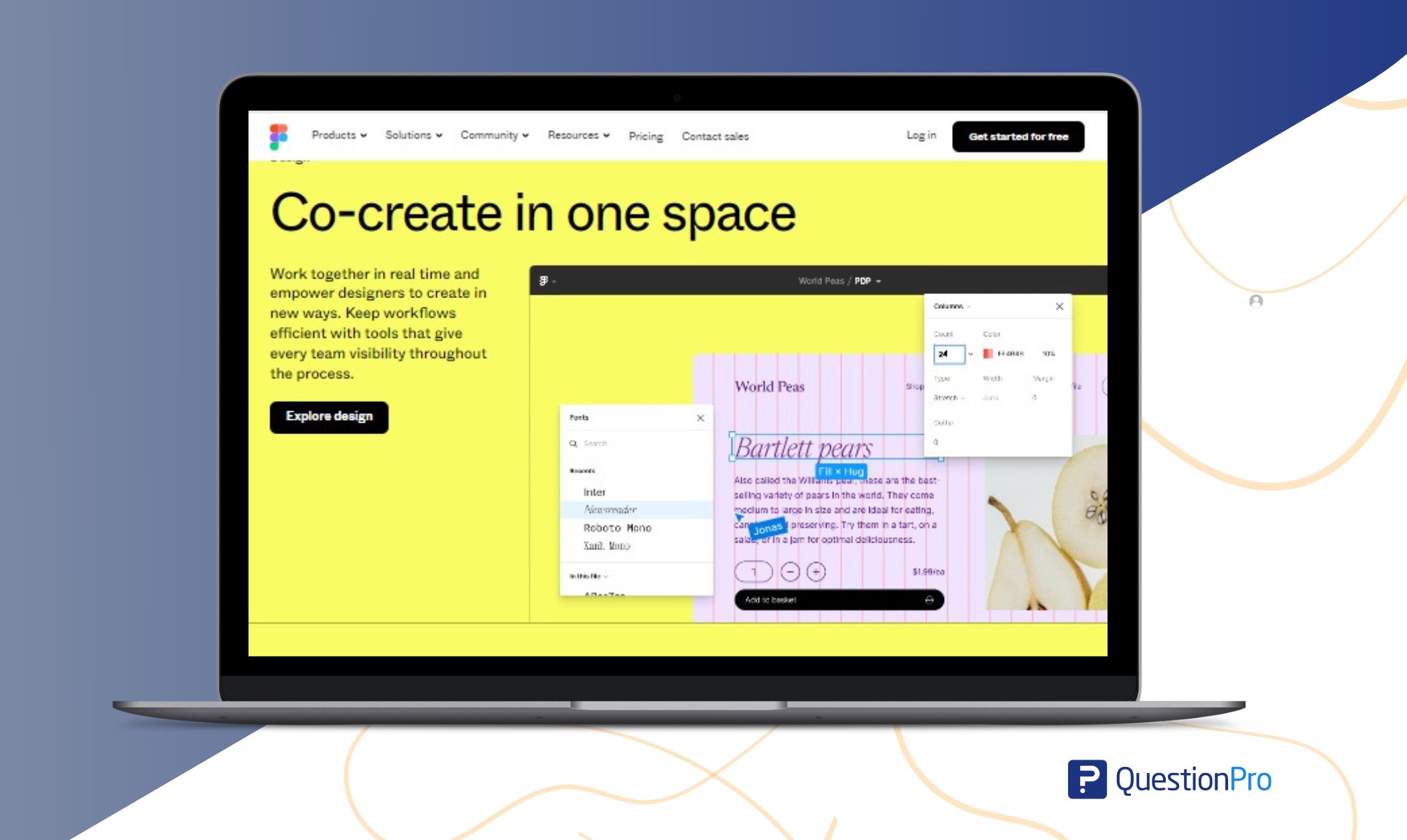
Figma is a collaborative interface design tool that allows teams to create, prototype, and collaborate on designs in real-time. Its real-time collaboration, prototyping, and design systems make it a valuable tool for UX researchers and designers.
Best For:
Figma’s cloud-based platform enables easy access and design sharing, while its integrations with other tools enhance workflow efficiency.
Pros:
- Prototyping features facilitate iterative design processes.
- The cloud-based platform allows for seamless access and design sharing.
- Version history and commenting streamline feedback.
- Responsive design capabilities for multiple devices.
Cons:
- Limited offline functionality compared to some desktop design tools.
- Performance may lag with large and complex designs.
Pricing:
- Custom pricing based on business size and needs.
7. Notion
Notion is an all-in-one workspace that enables teams to collaborate, plan, and organize projects and tasks. Its customizable workspace, database management, and collaboration tools make it ideal for organizing research materials and findings.
Best For:
Notion provides a flexible and customizable solution for researchers to effectively organize, collaborate, and manage their UX research projects.
Pros:
- Integrations with other tools enhance workflow efficiency.
- Versatile task management capabilities streamline project management.
- Document sharing and editing for team collaboration.
Cons:
- Limited formatting options compared to dedicated document editors.
- Performance issues with large databases or complex projects.
- Mobile app functionality may be limited for some features.
Pricing:
- Custom pricing based on business size and needs.
8. Hotjar
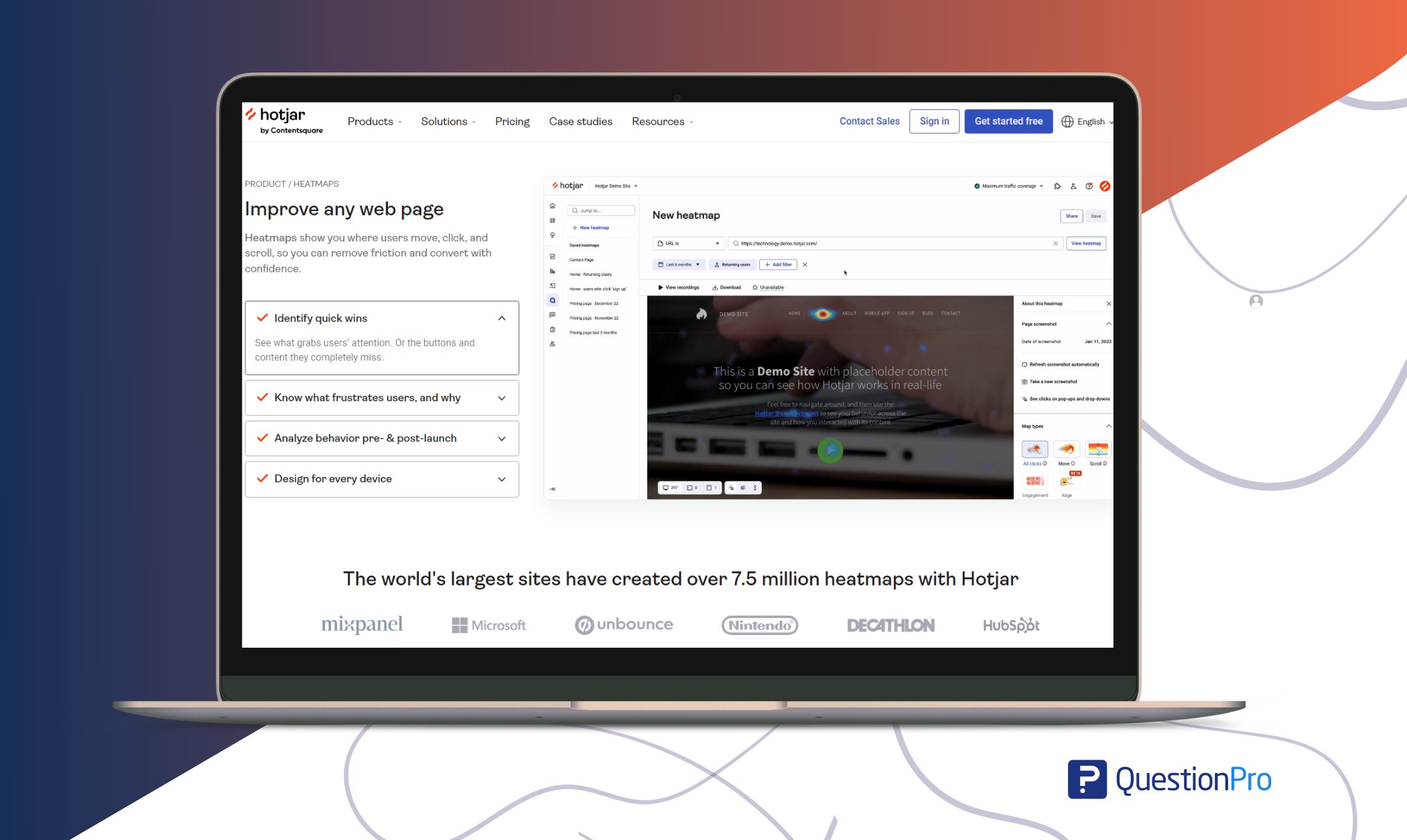
Hotjar is a behavior analytics and user feedback tool that helps researchers understand how users interact with their websites. Its features, such as heatmaps, session recordings, and surveys, provide valuable insights into user experience.
Best For:
Hotjar offers invaluable insights into user experience through a range of features, including heatmaps, session recordings, and surveys.
Pros:
- Feedback polls prompt users for input on specific elements or actions.
- Integration with other analytics tools enhances data analysis capabilities.
- Visitor recordings.
Cons:
- Limited functionality for complex UX analysis.
- Data privacy concerns may arise with session recordings and user feedback.
Pricing:
- The business plan starts at $80 per month.
9. Userlytics
Userlytics is a user testing tool that enables researchers to conduct remote usability tests and interviews. Its screen recording, webcam recording, tree testing, and task-based testing features make it easy to gather feedback from users.
Best For:
Userlytics offers an analytics dashboard for insights into user behavior and feedback and mobile device testing for comprehensive insights.
Pros:
- Remote testing capabilities facilitate access to diverse user demographics.
- The Analytics Dashboard offers insights into customer feedback.
- User testing on mobile devices for comprehensive insights.
Cons:
- Pricing may be prohibitive for small-scale projects or individual researchers.
- Limited customization options for test setup and execution.
Pricing:
- Pricing is available upon request.
10. Qualtrics
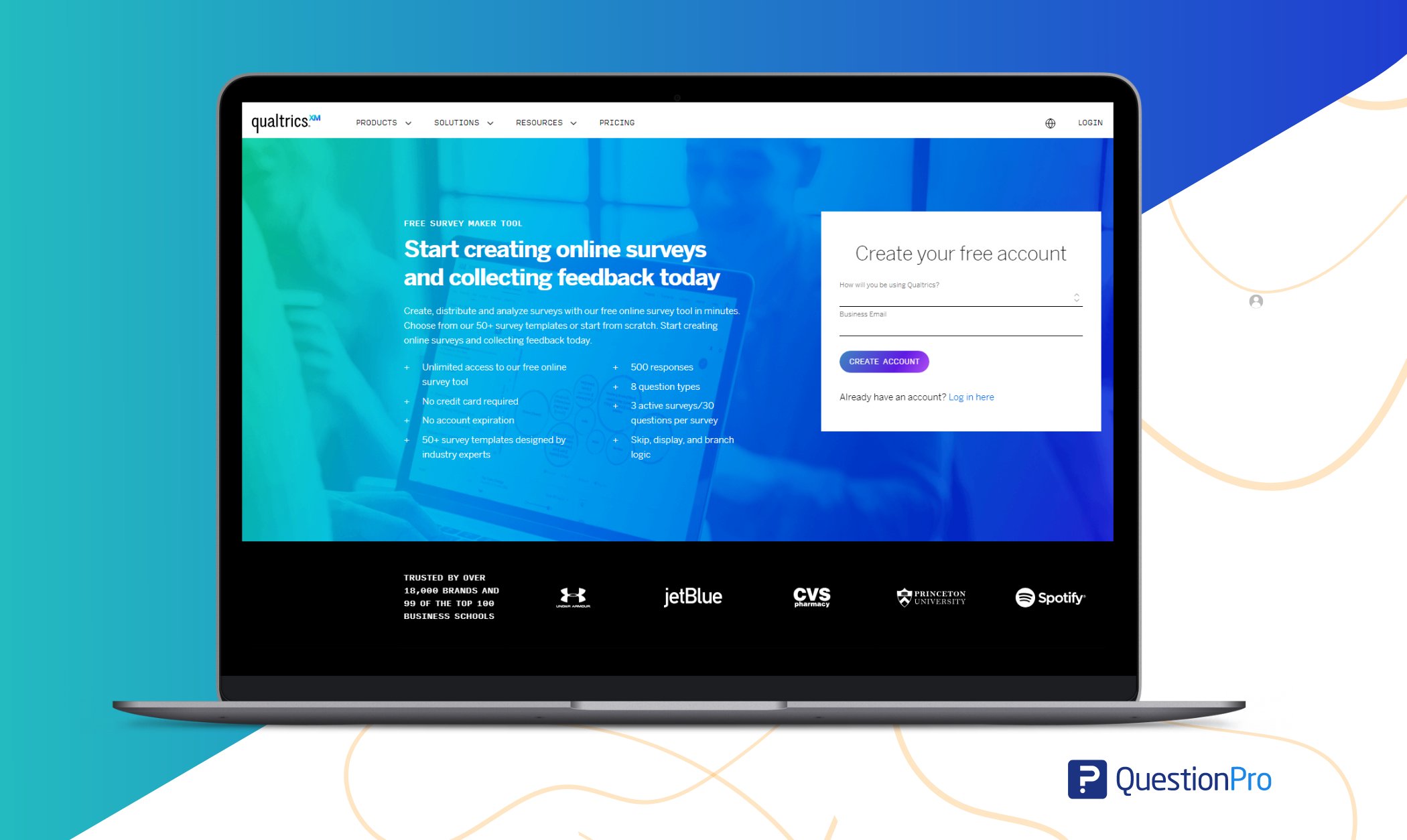
Qualtrics is a comprehensive experience management platform that offers tools for conducting online surveys, gathering feedback, and analyzing data. Its advanced survey logic, customization options, and powerful data analysis tools make it popular among researchers.
Best For:
Qualtrics offers a versatile solution for researchers to gather actionable insights and improve product experiences.
Pros:
- Integration with CRM and other systems streamlines data management.
- Powerful data analysis capabilities enable in-depth insights and reporting.
- Text and sentiment analysis for qualitative data.
Cons:
- Limited support for complex survey designs or experimental setups.
- Customization options may be restricted for certain features or question types.
Pricing:
- Custom pricing based on business size and needs.
11. Maze
Maze is a user-testing platform that allows researchers to create and run usability tests on prototypes and live websites. Its analytics dashboard, user insights, tree testing, and collaboration features make it easy to gather actionable user feedback.
Best For:
Maze offers streamlined setup processes for creating and launching usability tests and customizable test flows for user scenarios.
Pros:
- The streamlined setup process for creating and launching usability tests.
- Customizable test flows for different user scenarios.
- Unlimited projects and collaborators for scalability.
- User journey mapping for an overall understanding.
- prototype testing
Cons:
- Limited support for advanced testing methodologies.
- Support documentation may be lacking for troubleshooting.
Pricing:
- Starts at $99 per month for the Starter plan.
12. Loop11
Loop11 is remote UX research Software that enables researchers to conduct usability tests, surveys, and card-sorting studies. Its robust analytics, customizable tasks, and participant recruitment features make it a valuable platform for UX research.
Best For:
Loop11 offers collaborative analysis for team collaboration, benchmarking against industry standards, and card sorting studies for information architecture testing.
Pros:
- Collaborative analysis for team collaboration.
- Benchmarking against industry standards.
- Card sorting studies for information architecture testing.
Cons:
- Limited customization options for test setups and participant recruitment.
- Some features may require upgrading to higher-tier plans.
Pricing:
- Contact sales for pricing details.
13. Lyssna
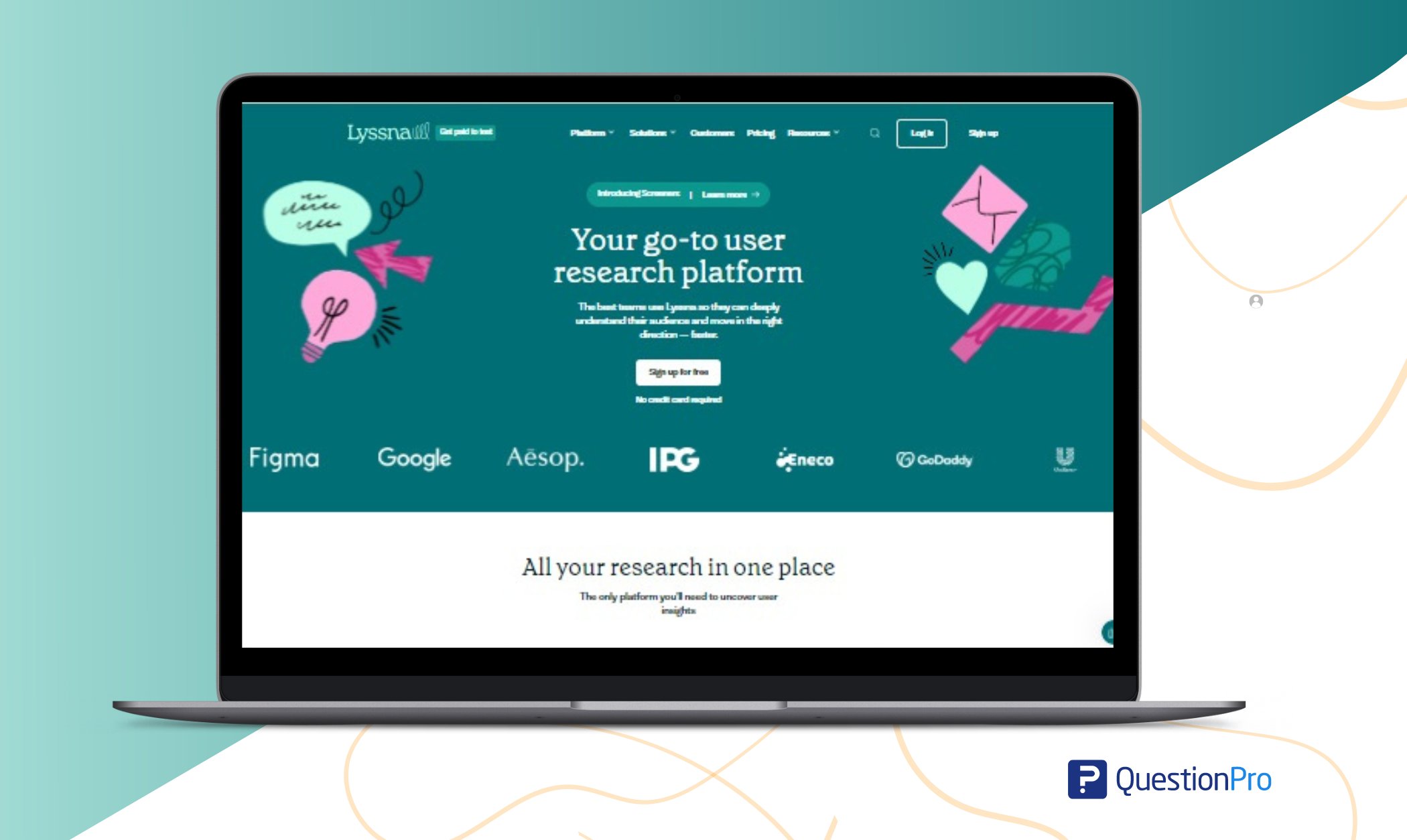
UsabilityHub has rebranded as Lyssna. It is a remote user testing platform that offers tools for conducting quick design feedback tests, preference tests, and first-click tests. Its fast turnaround time, diverse panel of participants, and intuitive interface make it easy to gather user insights.
Best For:
UsabilityHub offers researchers a convenient solution for gathering valuable feedback and improving product experiences.
Pros:
- Quick and easy setup for running design feedback tests.
- A diverse panel of participants ensures access to varied demographics.
- Multilingual support for global research.
Cons:
- Some features may be restricted to higher-tier plans.
Pricing:
- Custom pricing based on business size and needs.
14. User Interviews
User Interviews is a platform for recruiting participants for user research studies and interviews. Its diverse pool of participants, customizable screening criteria, and scheduling tools make it easy to find and schedule research participants.
Best For:
User Interviews offers flexible participant compensation options, automated email reminders for scheduling, and detailed participant profiles for screening.
Pros:
- Flexible participant compensation options.
- Participant management dashboard for easy tracking.
- Automated email reminders for scheduling.
- Detailed participant profiles for screening.
Cons:
- Limited customization options for participant recruitment and screening.
- Participant availability may be limited in certain demographics or regions.
Pricing:
- Contact sales for pricing details.
15. Optimal Workshop
Optimal Workshop is an excellent UX research software designed to facilitate various research methodologies, including card sorting, tree testing, and first-click testing. With its intuitive interface and customizable features, Optimal Workshop streamlines the research process, enabling researchers to gather actionable insights efficiently.
Best For:
Optimal Workshop stands out for its comprehensive suite of research methodologies, intuitive interface, and advanced analytics capabilities.
Pros:
- Card sorting, tree testing, and first-click testing.
- Advanced analytics and visualization features
- Flexible study customization options
Cons:
- Occasional technical bugs may impact user experience.
Pricing:
- Pricing is available upon request.
16. UXtweak
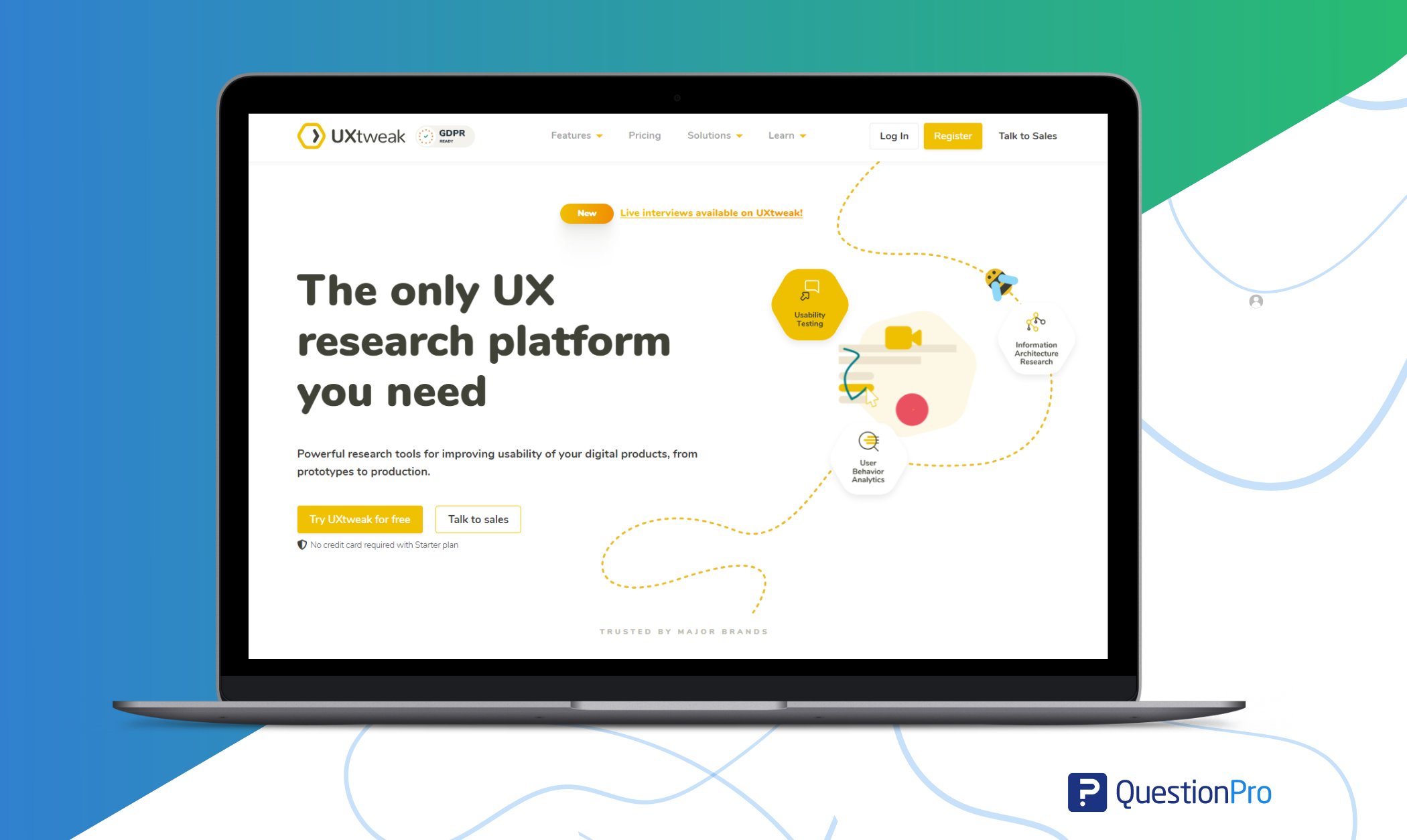
UXtweak is a user research platform offering a range of tools for conducting usability testing, card sorting, and tree testing. With its intuitive interface and customizable study setups, UXtweak makes it easy for researchers to gather actionable insights and improve the user experience.
Best For:
UXtweak provides a smooth user experience testing environment with features like heatmaps, session recordings, and task analysis, allowing researchers to gain a deeper understanding of user behavior.
Pros:
- Intuitive interface for easy study setup and management.
- Comprehensive usability testing tools, including heatmaps and session recordings.
- Advanced analytics and visualization features for in-depth insights.
Cons:
- Limited customization options for certain study types.
- Some features may require upgrading to higher-tier plans.
Pricing:
- Pricing is available upon request.
17. UserTesting
UserTesting is a remote user research platform that enables researchers to conduct usability tests, interviews, and surveys with real users. With its diverse panel of participants and advanced analytics, UserTesting provides valuable insights into user behavior and preferences.
Best For:
UserTesting offers a wide range of study types, including moderated and unmoderated tests, allowing researchers to choose the best method for their research objectives. Its robust analytics and reporting features make it easy to derive actionable insights from consumer feedback.
Pros:
- A diverse panel of participants for access to varied demographics.
- Wide range of study types, including moderated and unmoderated tests.
- Advanced analytics and reporting features for actionable insights.
Cons:
- Higher pricing compared to some competitors.
- Customization options may be limited for certain study types.
Pricing:
- Contact them for their pricing details.
How to Utilize QuestionPro as Your UX Research Software?
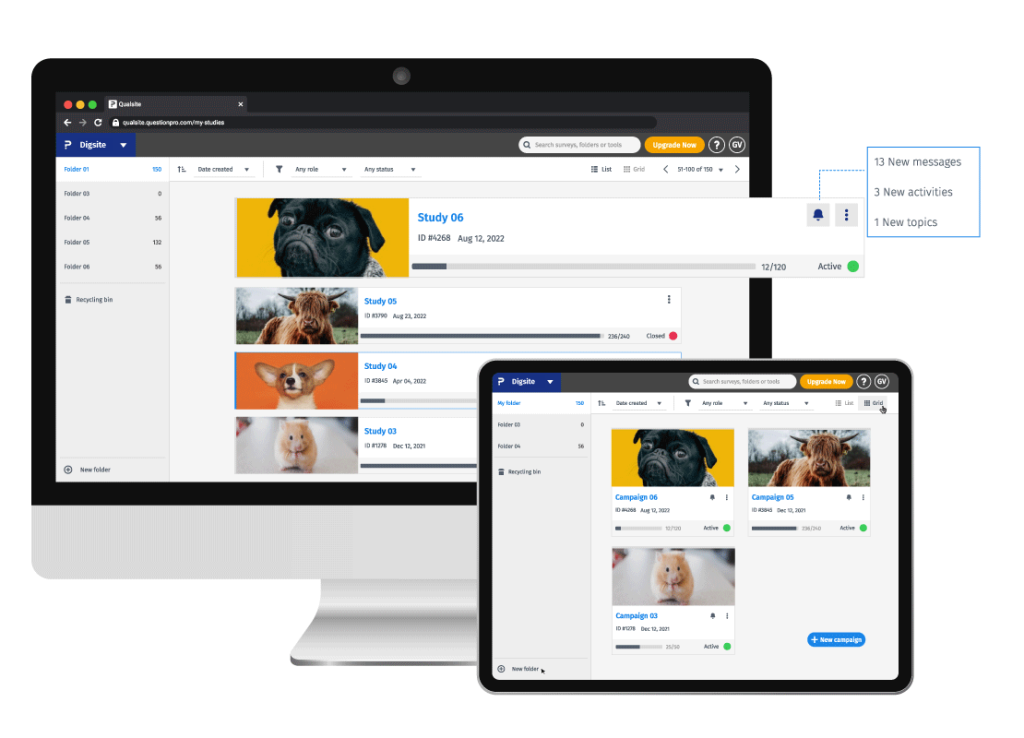
Utilizing QuestionPro as your UX research software offers a versatile platform for conducting user research activities to enhance user experiences. Here’s how you can leverage QuestionPro effectively:
Survey Creation
Use QuestionPro’s intuitive interface to create customized surveys customized to your research objectives. Design survey questions that gather insights into user preferences, behaviors, and satisfaction levels related to your product or service.
Participant Recruitment
Utilize QuestionPro’s participant recruitment tools to reach your target audience and gather diverse feedback. Implement screening criteria to ensure that participants match the demographics and characteristics relevant to your research.
Usability Testing
Explore QuestionPro’s capabilities for conducting usability tests to evaluate the ease of use and effectiveness of your product’s interface. Create tasks and scenarios for participants to complete while observing their interactions with the interface.
Feedback Collection
Deploy feedback surveys using QuestionPro to gather user input regarding your product’s specific features, designs, or functionalities. To gather qualitative and quantitative data and feedback, utilize various questions, including open-ended, multiple-choice, and Likert scales.
Custom Reporting
Use QuestionPro’s reporting capabilities to generate custom reports and visualize survey data effectively. Create charts, graphs, and heatmaps to communicate research findings clearly and compellingly to stakeholders and team members.
Iterative Research
Conduct iterative research cycles using QuestionPro to continuously gather feedback and make iterative improvements to your product or service. Incorporate feedback into design iterations, allowing user-centered design principles to guide product development.
Multilingual Surveys
Expand the reach of your research efforts by deploying multilingual user surveys using QuestionPro’s multilingual support. Reach users in different regions and language preferences to gather diverse perspectives and insights.
Collaboration
Use QuestionPro’s collaboration features to collaborate with team members and stakeholders throughout the research process. Share survey designs, reports, and insights with team members to foster collaboration and alignment on research goals and findings.
Conclusion
These top 17 UX research software tools offer a comprehensive range of features and functionalities to streamline your research design process and gather valuable insights into user behavior. Whether you’re conducting usability tests, surveys, or interviews, these tools will help you create exceptional user experiences and drive product success.
Before deciding, consider your research needs, budget, and team requirements. QuestionPro is an excellent choice for UX research due to its advanced features, easy integration, and user-friendly interface.
Whether it’s surveys, usability tests, or market research, QuestionPro has the tools you need to gather insights and enhance user experiences. If you’re looking for UX research software, give QuestionPro a try! Contact us for a free trial or more information.
Frequently Asked Questions (FAQ)
UX research software helps UX professionals conduct and manage user research activities to gather insights into user behaviors and preferences.
Key features include usability testing, user interviews, surveys, persona creation, journey mapping, and analytics integration.
Yes, many UX research tools offer integrations with design tools, project management platforms, and analytics software for seamless workflow management.




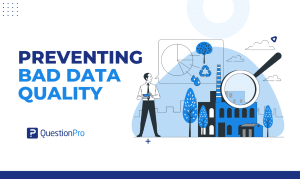
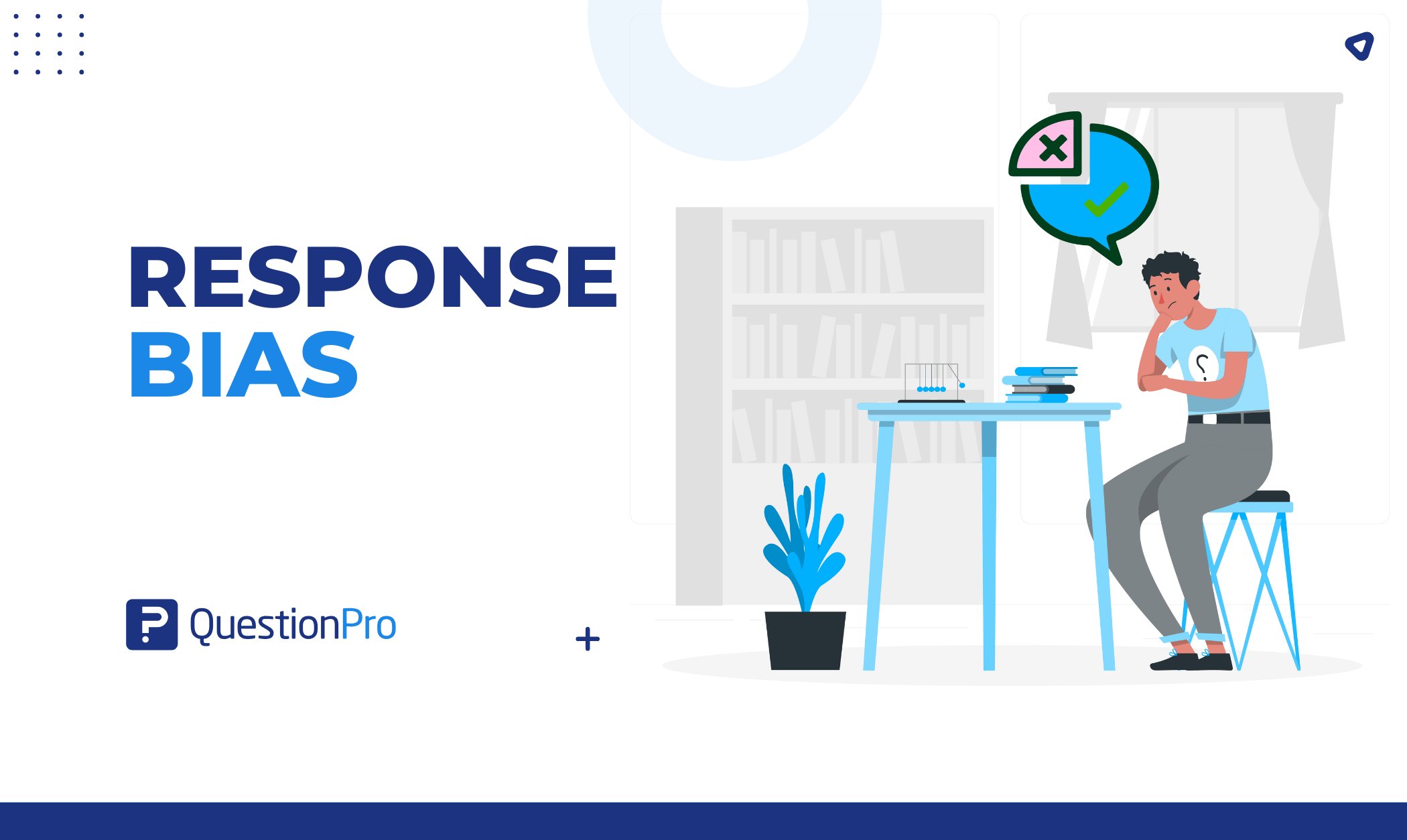
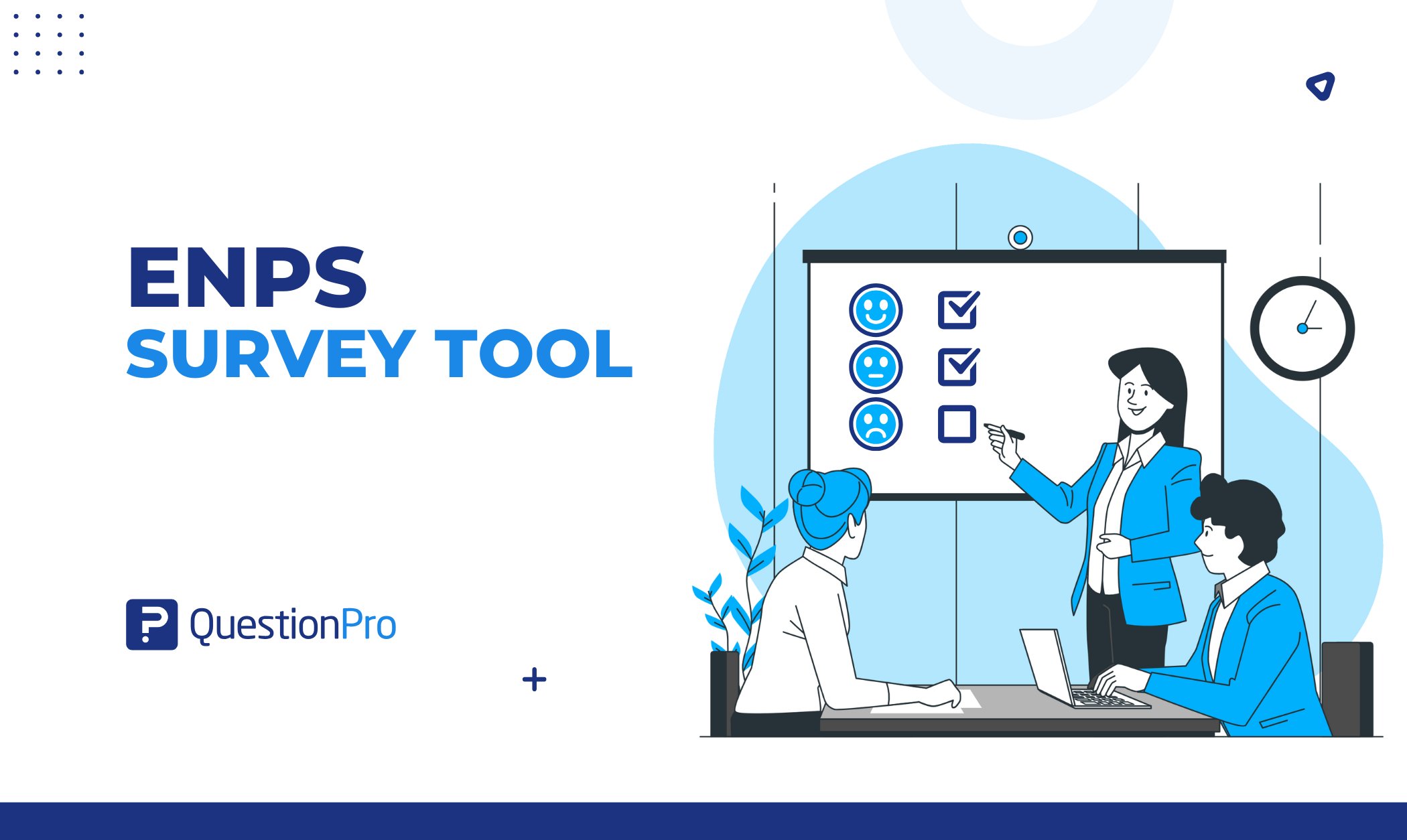
![[CX]-TCXT-closing-the-loop](https://www.questionpro.com/blog/wp-content/uploads/2025/06/CX-TCXT-closing-the-loop.jpg)